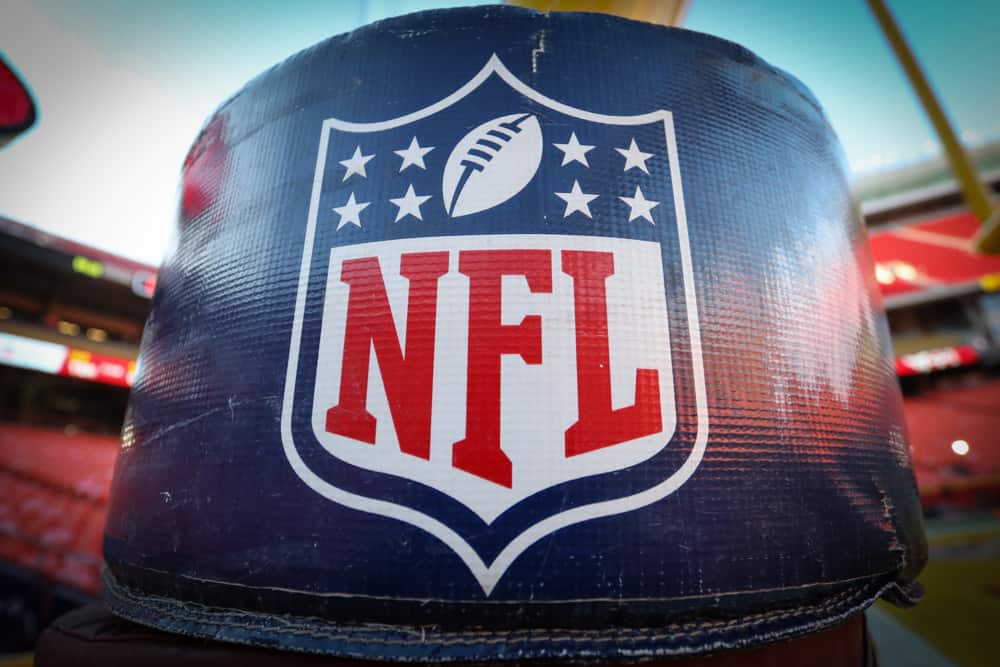There’s no question that we live in strange and scary times.
The Coronavirus has shut down, suspended, or halted numerous college seasons, pro sports and amateur leagues throughout the world.
So far, the NFL plans to begin the 2020 season on time.
However, if the recent postponement of the 2020 Summer Olympic Games is any indication, the NFL season may suffer the same fate.
If things continue to get worse (or fail to improve significantly) the NFL office may announce a delay to the start of the new season or reduce the schedule by a certain number of games.
A shorter season means that NFL clubs can’t afford to have any competitive lapses or losing streaks.
For a team like the Cleveland Browns, a re-built roster requires time to gel during a normal season.
A shorter season could forecast doom for such teams in re-build mode.
Cleveland fans shouldn’t concern themselves too much about their franchise’s playoff prospects in 2020 though, even if the season is cut short.
After all, the Browns did make the playoffs once despite only winning four games.
The 1982 Players Strike
Super Bowl 16, played at the end of the 1981 season, was a television ratings bonanza.
The showdown between the Cincinnati Bengals and San Francisco 49ers was broadcast on CBS and set an all-time ratings high for a sporting event at that time.
This gave the NFL owners confidence to pry a little more money out of their broadcast partners for subsequent seasons.
With the wheels set in motion, the league entered into a new agreement that became a five year deal with CBS, NBC, and ABC.
This deal would begin with the 1982 NFL pre-season games.
Sensing their own opportunity given this new contract, the NFL Players Association and their president, Ed Garvey, demanded a 55% stake in revenue sharing, beginning with the ‘82 season.
This demand was at the forefront among other to-be-negotiated deal points of a new collective bargaining agreement.
The NFL owners, as expected, balked at this percentage.
Agreeing to the demand would have meant an approximate $1.6 billion to the players in assorted income during the four years of what would be the new agreement.
The owners, suffice it to say, had no intention of giving up this much cash.
The bickering and posturing went back and forth until September 20 of that season.
After a Monday night game between the Giants and Packers, the players officially went on strike.
The owners immediately countered by locking out the players from all team facilities.
As the strike continued on for the next few months, the major sticking point in the negotiations was the 55% amount.
Garvey had no intention of moving from this position and he encouraged the players to follow suit.
However, with the loss of income and pressure from marquee players such as Cowboys quarterback Danny White, cracks in the NFLPA armor started to show.
As the strike dragged on into November, the players wanted to speed things along and try to salvage what was left of the season.
The two sides, players and owners, finally decided to sit down and hash out their issues to get a deal done.
At the conclusion of four long days and nights, a deal was finally struck on November 16.
For their trouble, the players received a five year, $1.28 billion package plus incentives for the new agreement.
Next on the agenda, how many games would be played in the abbreviated season and what would the playoff format look like?
A Nine Game Season and a Unique Playoff “Tournament”
It was quickly decided that the ‘82 season would be scaled down to nine games.
At the conclusion of the shortened season, the playoffs would look a lot different than years past.
Instead of the top seeds from each division making the playoffs, the format would be a de facto “Super Bowl Tournament.”
Eight teams from each conference would be seeded 1-8 based on their regular-season records.
At the conclusion of the regular season, two teams made the playoffs despite losing records.
The Detroit Lions were the 8th seed on the NFC side with a 4-5 record.
On the AFC side, your beloved Cleveland Browns also made the 8th seed with a 4-5 record.
Incidentally, both the Buffalo Bills and Seattle Seahawks (who were still in the AFC at that time) also finished with 4-5 records.
However, the Browns grabbed the 8th spot by virtue of their better conference record of 4-3.
As the 8th seed, the Browns were pitted against the number one seed LA Raiders, who completed the ‘82 season with an 8-1 record.
Despite the difficult matchup, the Browns more than held their own and were tied with the Raiders 10-10 before halftime.
Unfortunately, the Raiders hit their stride and put up 17 unanswered points on the way to a 27-10 victory.
The stars that day for Cleveland were quarterback Paul McDonald, receiver Ricky Feacher, and kicker Matt Bahr.
OTD 1-8-1983 @RAIDERS beat the @browns 27-10 in the 1982 playoffs at the @lacoliseum
Jim Plunkett 386 pass yrds@MarcusAllenHOF 75 rec yards, 72 rush yards, 2 TDs
Cliff Branch 121 rec yards
Rod Martin 2 sacks
Raider D 6 sacks, 2 FR https://t.co/6qIHXlsDCg pic.twitter.com/BU2lRw7pu9
— Raiders History (@Oaklraiders1976) January 8, 2018
Since that season, only two other teams have made the playoffs with losing records.
In 2010, the Seahawks entered the post-season with a 7-9 record and were also the first sub .500 team to win a playoff game.
In 2014, the Carolina Panthers won their division with a 7-8-1 record.
So, keep the faith Browns fans.
No matter what transpires this season, stranger things have happened.
And, regardless of the season’s length, we just might see a playoff berth for the first time since 2002!
NEXT: Browns History: "Two Point Tupa" And The Two-Point Conversion